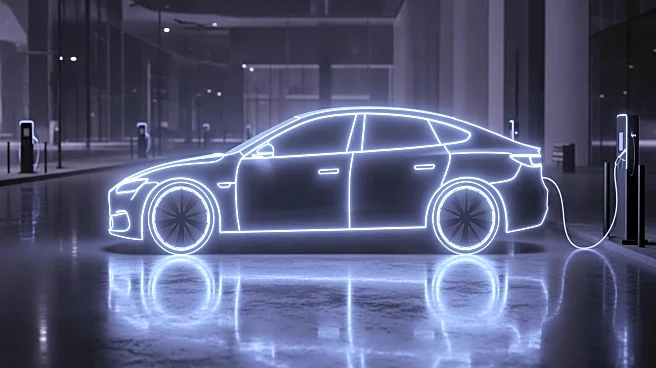What's Happening?
Ford UK's managing director, Lisa Brankin, has expressed concerns over potential new taxes on electric vehicles (EVs) in the UK. The Chancellor, Rachel Reeves, is reportedly considering implementing a pay-per-mile
charge for EVs starting in 2028. Brankin argues that such taxes could deter consumers from purchasing EVs, especially as demand has recently lost momentum. Ford, which sells popular models like the Ford Puma and Transit, is under pressure to meet the UK's net zero plan, requiring 80% of new car sales to be EVs by 2030. The government has reinstated a grant to encourage EV purchases, but Brankin emphasizes the need for continued support to achieve these targets.
Why It's Important?
The introduction of new taxes on EVs could significantly impact the automotive industry, particularly companies like Ford that are transitioning to electric models. With demand for EVs not meeting expectations, additional financial burdens could slow the adoption of electric vehicles, affecting the UK's environmental goals. The potential tax changes could also influence consumer behavior, making EVs less attractive compared to traditional vehicles. This situation highlights the delicate balance between encouraging green technology and maintaining market stability.
What's Next?
If the proposed taxes are implemented, Ford and other automakers may need to adjust their strategies to maintain competitiveness in the EV market. The industry could see increased lobbying efforts to retain existing tax benefits for companies investing in green technologies. Additionally, the future of Ford's diesel engine plant in Dagenham remains uncertain, as the shift to EVs could affect its operations. Stakeholders will be closely monitoring government decisions and market responses in the coming months.











